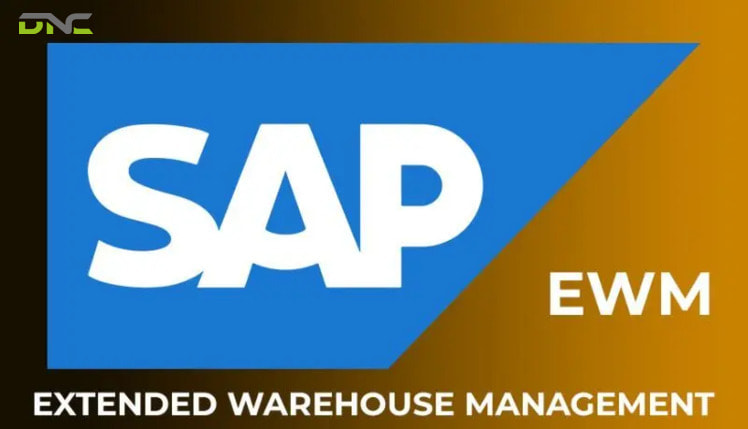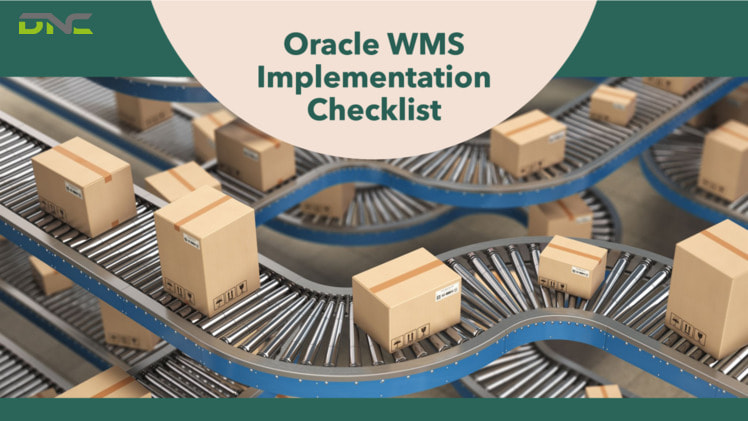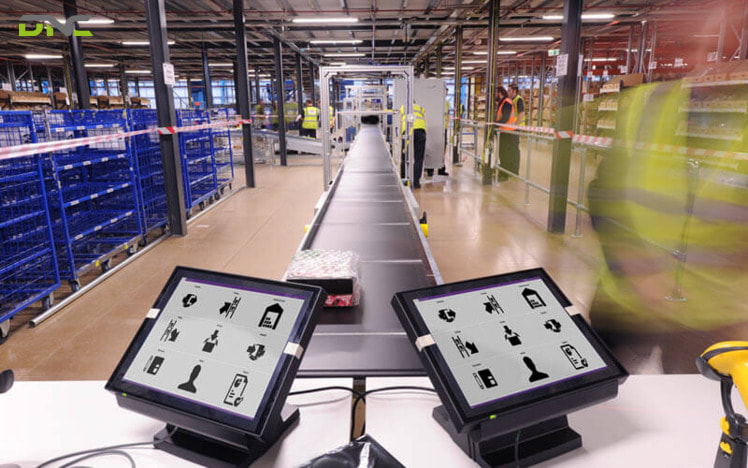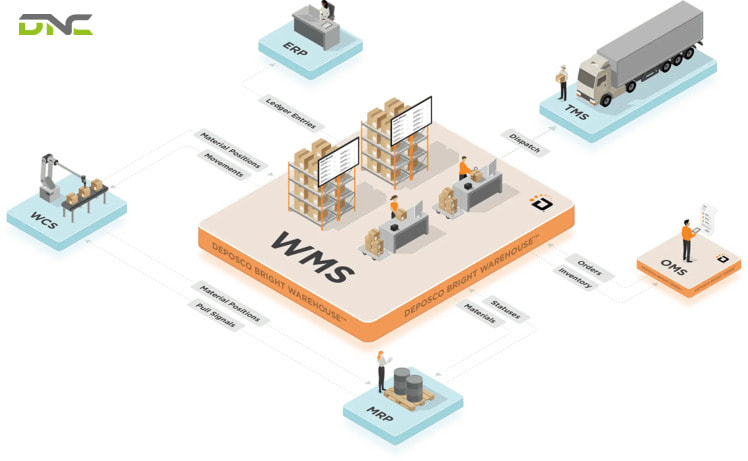Top 5 Warehouse Management Systems 2026
Warehouse management systems (WMS) play a key role in optimizing modern supply chains. This article by DNC Automation will summarize the top 5 WMS software in 2025, helping businesses improve operational efficiency, save costs and control inventory more accurately than ever.
What is Warehouse Management System (WMS)?
Warehouse Management System (WMS) is a software system that supports businesses in managing and optimizing all warehouse operations, including: inventory tracking, storage location control, import and export management, human resource coordination and automating warehouse processes.
WMS plays a key role in improving warehouse operation efficiency thanks to the following benefits:
- Reducing errors and loss of goods through accurate control of quantity and location.
- Increasing labor productivity by automating import, export and inspection processes.
- Optimizing storage space, helping to arrange warehouses scientifically and save costs.
- Improving the ability to respond quickly to orders, especially in e-commerce.
- Flexible connection with other systems such as ERP, TMS, helping to manage the supply chain more effectively.
What are the criteria for evaluating a WMS system?
Currently, there are many different WMS systems, each with its own strengths. To choose the right solution, businesses should rely on some of the important criteria below.
- Functional features: The system needs to fully support warehouse management functions: inventory tracking, location control, import and export management, inventory, packaging, internal transportation, etc.
- Integration capabilities: WMS should be easily integrated with other systems such as ERP, CRM, TMS, sales software (POS) or eCommerce platforms such as Shopify, Magento, etc.
- Scalability: The system needs to respond well when the business expands in scale, increases the number of orders or adds new warehouses.
- Security and stability: Ensure warehouse data security, have clear authorization and operate stably even in peak conditions.
Top 5 Warehouse Management Systems 2025
With the rapid development of e-commerce and global supply chains, choosing an effective warehouse management system (WMS) is more important than ever.
Below are the 5 most highly rated WMS systems today, helping businesses optimize warehouse operations and improve competitiveness.
SAP Extended Warehouse Management (SAP EWM)
SAP EWM is part of the enterprise solution ecosystem of SAP – a technology corporation from Germany.
This is a WMS system designed to serve large enterprises with complex warehouse operations, many branches, and strict control of the supply chain.
SAP EWM supports flexible coordination of raw material flows, optimizes warehouse space and improves warehouse personnel productivity. Suitable for large enterprises in the heavy industry, automotive, retail, logistics and global distribution.
Advantages
- High flexibility and scalability, easy to integrate with SAP ERP and manufacturing solutions (SAP ME, SAP PP).
- Allows businesses to design virtual warehouses, simulate operations before actual deployment.
- Supports analysis and forecasting of storage needs based on historical data.
Disadvantages
- Licensing and implementation costs are very high, requiring large investments in time and human resources.
- Requires a highly skilled technical team to customize and maintain the system.

SAP Extended Warehouse Management (SAP EWM)
Oracle Warehouse Management Cloud (Oracle WMS Cloud)
Oracle WMS Cloud is one of the most modern WMS solutions based on cloud technology, helping businesses easily deploy and maintain without investing in large hardware infrastructure.
Oracle provides a smart, flexible warehouse management system with built-in AI and machine learning technologies to support fast and accurate decision making.
Suitable for medium and large enterprises in the retail, food – beverage, and logistics industries that want to deploy quickly and optimize operating costs.
Advantages
- Save infrastructure costs because it operates entirely on the cloud.
- Easy to expand and update the system regularly without interrupting operations.
- Ensure security and automatic data backup.
Disadvantages
- Depends on a stable internet connection.
- Periodic subscription costs can be high if the business has many warehouses or large data.

Oracle Warehouse Management Cloud
Manhattan Associates WMS
Manhattan WMS is a high-end warehouse management solution from the US, designed specifically for businesses with strict requirements on order processing speed, multi-channel sales and operating according to a modern distribution model.
This is WMS software used by many retail corporations and large supermarket chains to ensure the smooth operation of goods. Suitable for large retail businesses, supermarket chains, logistics and multinational e-commerce.
Advantages
- High customization and deep integration with business operating systems.
- Intuitive interface, easy to train and use.
- Can be deployed on-premises or on the cloud depending on needs.
Disadvantages
- Requires large initial investment and requires an experienced operating team.
- Complicated when deployed at multiple locations at the same time.

Manhattan Associates WMS
Blue Yonder (formerly JDA WMS)
Blue Yonder is a WMS solution that stands out with its ability to apply artificial intelligence and machine learning to optimize warehouse operations.
This system allows businesses to deeply analyze operational data and automatically make decisions based on market fluctuations, orders and warehouse productivity. Suitable for large businesses in the fields of retail, e-commerce, logistics and manufacturing.
Advantages
- Ability to accurately forecast and flexibly respond to market fluctuations.
- Integrates well with many different ERP and SCM systems.
- Suitable for businesses with complex warehouse processes and high optimization requirements.
Disadvantages
- High investment costs.
- Deployment and staff training can be lengthy due to the complex system.

Blue Yonder (formerly JDA WMS)
Fishbowl Inventory
Fishbowl is a popular WMS software in the small and medium-sized business segment, featuring a friendly interface, sufficient features and reasonable cost. This is an ideal solution for companies looking for a professional warehouse management system but not too complicated or expensive. Suitable for small and medium-sized businesses in the manufacturing, e-commerce and domestic retail sectors.
Advantages
- Easy-to-use interface, quick deployment.
- Suitable for small manufacturing or retail models.
- Lower investment and operating costs compared to high-end software.
Disadvantages
- Not suitable for large-scale businesses or complex warehouse systems.
- Some advanced features are limited or require additional fees.

Fishbowl Inventory
Conclusion
In the digital age, selecting the right warehouse management system (WMS) is a crucial factor in enabling businesses to optimize their supply chains, minimize errors, and enhance operational efficiency.
Whether you are a startup or a multinational corporation, each of the top 5 WMS solutions in 2025 offers unique value – from automation, smart analytics to flexible integration. Carefully consider the criteria of scale, budget, and industry specificity to make the right choice, thereby building an efficient, sustainable and future-ready logistics system.
- 18 views
- 0 Comment




Recent Comments